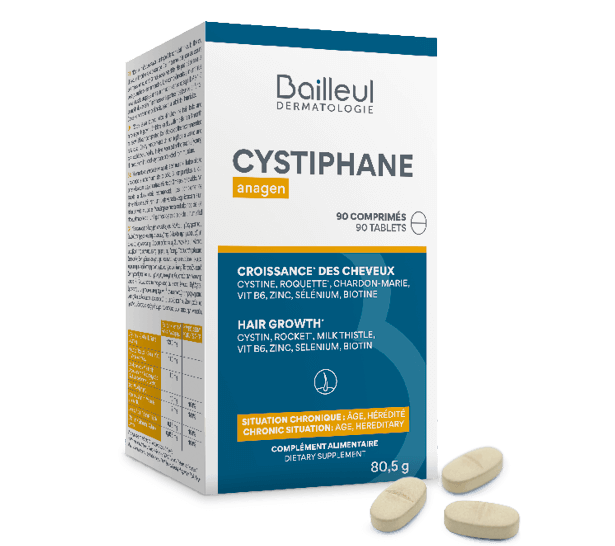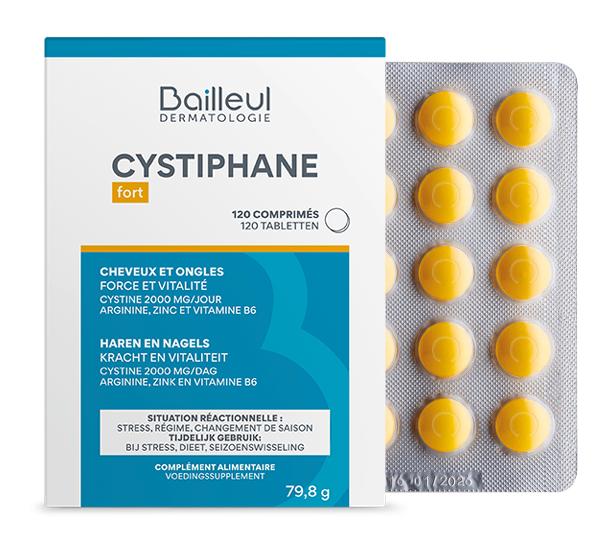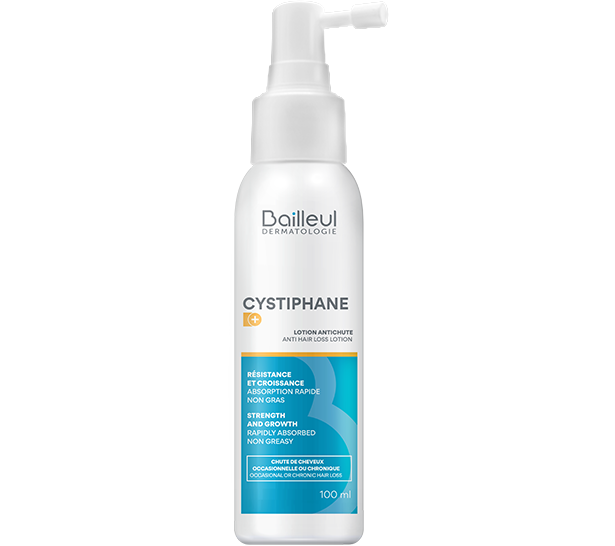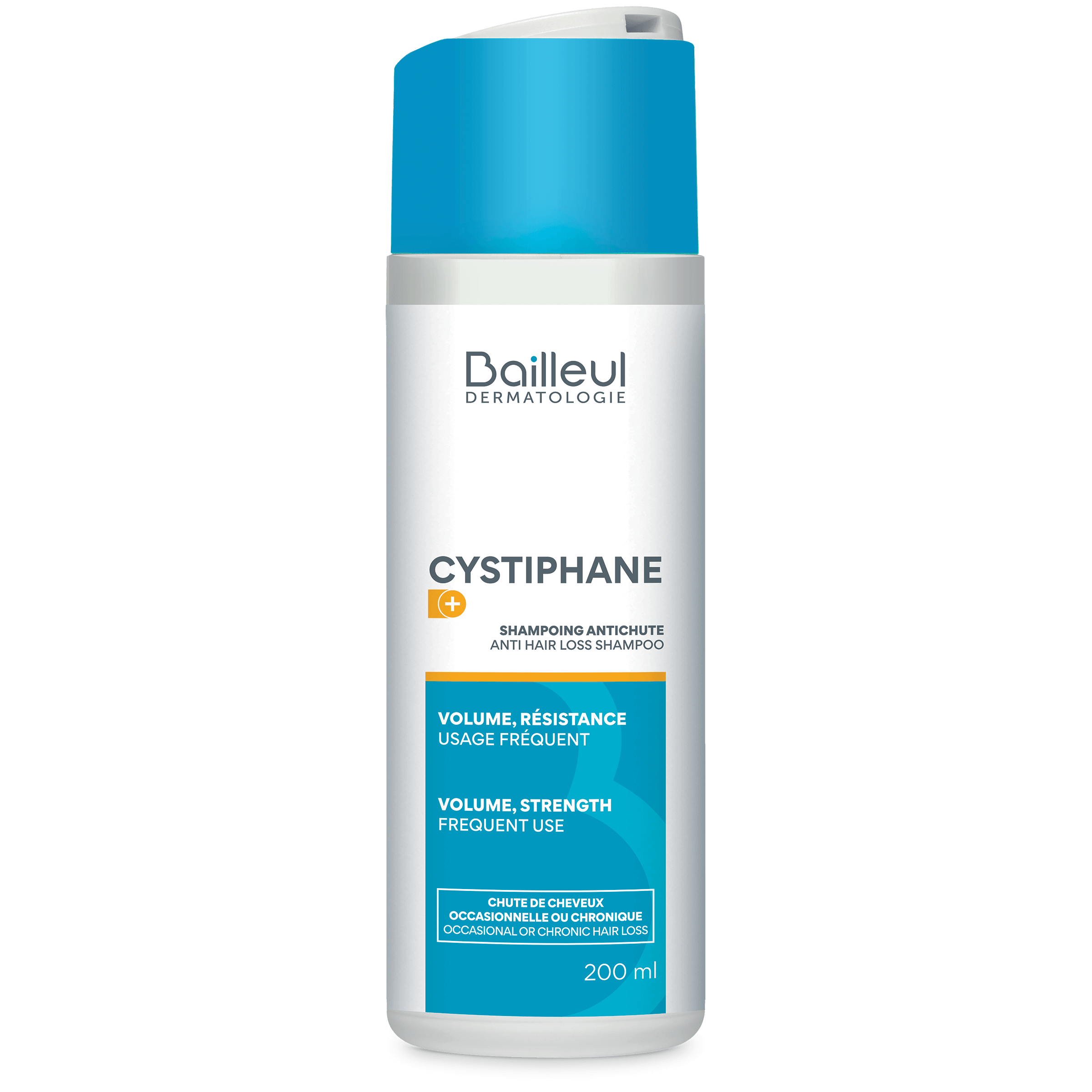Cystine is a sulfur-containing amino acid essential for the structure of the hair. As a key component of keratin, it contributes to the strength, growth, and vitality of the hair fiber. Pioneers in its use in dermatology, the Laboratoires Bailleul have demonstrated its essential role in maintaining healthy hair and offer innovative solutions to strengthen weakened hair and slow down hair loss.
What is cystine?
Cystine is one of the rare amino acids that contains sulfur, hence its name as a sulfur amino acid. This property allows it to create specific bonds, called disulfide bonds, which play a crucial role in the structure of keratin, the main protein that makes up hair, nails, and skin (1).
To enhance its effectiveness, cystine is often combined with vitamin B6. This vitamin facilitates the incorporation of cystine into the hair and actively participates in the metabolism of sulfur-containing amino acids. It also plays an important role in keratin synthesis (2).
Laboratoires Bailleul, pioneers in this exclusive combination, have developed expert formulas that optimize the joint action of cystine and vitamin B6 to support hair health and vitality in a targeted and effective way.
The benefits of cystine for hair
Cystine plays a key role in hair health by acting directly on the hair life cycle.
Naturally present in the body, this sulfur-containing amino acid is one of the essential building blocks of keratin, the main structural protein of the hair (3).
Cystine actively contributes to hair regeneration and the improvement of hair quality.
It helps to:
-
Strengthen the hair fiber: by optimizing keratin production, it improves the hair’s resistance to external aggressions (3).
-
Promote hair growth: studies have shown that high doses of cystine significantly increase the speed of hair growth and hair thickness (4).
-
Protect against oxidative stress: containing sulfur, cystine participates in the synthesis of glutathione, a powerful antioxidant naturally produced by the body. This helps protect hair cells from damage caused by oxidative stress and hormonal imbalances (5).
When should you consider a cystine supplement?
Supplementation with cystine can be beneficial in several situations:
-
Reactive hair loss: after a period of stress or fatigue, childbirth, seasonal changes, or nutritional deficiencies, in order to stimulate regrowth.
-
Chronic hair loss (androgenetic alopecia): as a complement to medical treatment to provide maximum nutrients to the hair roots, strengthen them, and slow down hormone-related hair loss.
-
Weak, dull, or brittle hair: to restore strength and shine.
Which foods are rich in cystine?
Cystine is found in most protein-rich foods, especially animal proteins (meat, organ meats, eggs).
It is also present in dairy products and cereals (6).
To boost your cystine intake as part of a complete hair care routine, focus on (6):
- Meat and fish, sources of complete proteins,
- Soy-based products such as tofu or soy milk,
- Legumes such as lentils and chickpeas,
- Cereals such as quinoa, oat bran, and whole wheat flour,
- Dairy products such as cottage cheese and eggs,
- Almonds and split peas.
Adopting a varied and balanced diet, therefore, helps promote keratin production and strengthen the hair fiber from within. Dietary supplements do not replace a varied and balanced diet or a healthy lifestyle.
CYSTIPHANE, the expert solution from Laboratoires Bailleul
Because a good diet is not always enough, Laboratoires Bailleul developed CYSTIPHANE, the expert hair care range designed to address scalp issues and weakened hair.
CYSTIPHANE FORCE AND VITALITY: a complete synergy including dietary supplements, an anti-hair loss lotion, and an anti-hair loss shampoo to stimulate growth and strengthen the hair.
Whether your goal is to slow down hair loss, improve hair vitality, or treat scalp imbalances, CYSTIPHANE offers simple and effective routines to restore stronger, healthier hair.
Discover the complete CYSTIPHANE range and give your hair the best of hair science.
FAQ
"Are all cystine-based dietary supplements the same?"
No, not all of them. Formulations vary according to cystine concentration, the addition of essential vitamins and minerals (B6, zinc, selenium), and their bioavailability.
"Are there any side effects or contraindications?"
Cystine is generally well tolerated. However, excessive intake may cause minor digestive discomfort. In case of doubt, medical advice is recommended. To learn more about the dosage associated with our cystine-based range, consult the CYSTIPHANE FORCE AND VITALITY page. It is important not to exceed the recommended daily dose.
"Does cystine cause weight gain?"
No, cystine has no effect on metabolism or weight gain. It acts exclusively on hair health and keratin production.
Thanks to its key role in hair structure, cystine remains an essential ally in preserving the beauty and strength of the hair. With innovative formulas like CYSTIPHANE, Laboratoires Bailleul continue to provide expert solutions to strengthen and stimulate hair growth.
References
1. Hilterhaus-Bong S, Zahn H. Contributions to the chemistry of human hair. 1. Analyses of cystine, cysteine and cystine oxides in untreated human hair. Int J Cosmet Sci. 1987;9(3):101-110. doi:10.1111/j.1467-2494.1987.tb00467.x
2. D'Agostini F, Fiallo P, Ghio M, De Flora S. Chemoprevention of doxorubicin-induced alopecia in mice by dietary administration of L-cystine and vitamin B6. Arch Dermatol Res. 2013;305(1):25-34. doi:10.1007/s00403-012-1253-1
3. Mitsui T, New Cosmetic Science. Part 1: Cosmetics and hair and nails. Elsevier Science, 1997.
4. Matheson HB, Westgate GE, Parmar PP, Riches C, Blount MA, Ellory JC. Nutrition and metabolism in isolated human hair follicles. Exp Dermatol. 1999;8(4):319-320.
5. Riegel K, Hengl T, Krischok S, Schlinzig K, Abts HF. L-Cystine-Containing Hair-Growth Formulation Supports Protection, Viability, and Proliferation of Keratinocytes. Clin Cosmet Investig Dermatol. 2020;13:499-510. Published 2020 Aug 3. doi:10.2147/CCID.S254720
6. Vasdev S, Singal P, Gill V. The antihypertensive effect of cysteine. Int J Angiol. 2009 Spring;18(1):7-21. doi: 10.1055/s-0031-1278316. PMID: 22477470; PMCID: PMC2721729.


 (2).png)
%20(1).png)
%20(1).png)
%20(1).png)
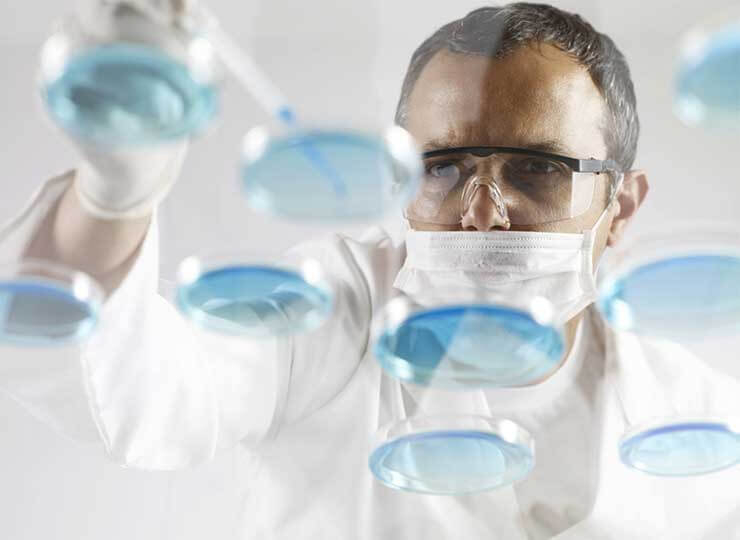

 (1).png)
